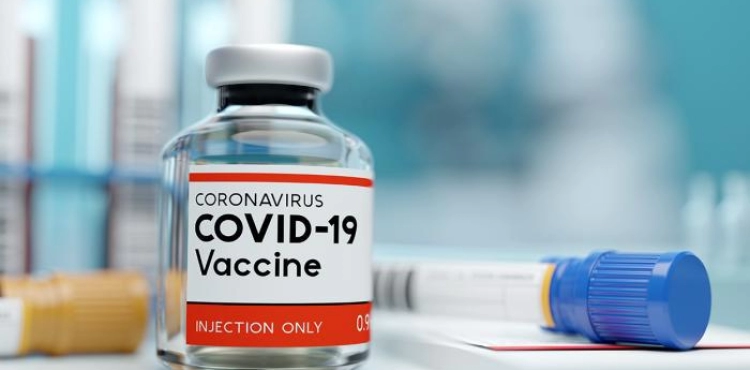At a time when Balkan governments are working hard to obtain vaccines against the emerging corona virus, they find themselves in front of another opponent represented by an anti-vaccination movement that is gaining momentum and trying to grab the limelight.
With skeptics about the efficacy of vaccines from rebel doctors, politicians, and even celebrities such as Serbian tennis champion Novak Djokovic, misinformation about the epidemic has spread on social media at the speed of the virus itself.
A Facebook user wrote about the new vaccine against Covid-19 on the page of a prominent vaccine critic, "Of course, the Serbs will reject this evil, deadly thing."
Another asked, "Why do healthy people need a vaccine?"
And the Balqa will be among the poorest European countries that will struggle to buy enough doses for all of their residents.
But confronting spreading suspicions will be an additional challenge as the western Balkans become fertile ground for the anti-vaccine movement to flourish.
"We must not allow ... semi-educated charlatans and quacks to control the biggest names and scientific institutions that have saved millions of lives since the first vaccines appeared," said North Macedonia President Stefo Bandarovsky.
His concern is warranted. In October, a regional survey found that more than half of those surveyed in most countries were refusing to receive a vaccine, according to the Consultative Group on Balkan Policy in Europe (PEPAG).
By way of comparison, a survey conducted by Ipsos in the same month found that more than 60 percent of people in countries such as Spain, Germany and the United States want to get the vaccine.
Although some may simply be wary of the rapid, standard development of vaccines against Covid-19, the Balkans are also home to believers in conspiracy theories related to the emerging corona virus, according to "Bebag".
For example, half of the people surveyed said they believed that the virus was created by the Chinese government in the laboratory and that drug companies contributed to its spread.
About a third said that there is some truth in the theories of the virus’s connection to fifth generation (5G) networks, the US military development of biological weapons, and Bill Gates’s intention to divide the world’s population.
In its report on the region that includes Serbia, Bosnia, Albania, Kosovo, Montenegro and North Macedonia, Peibag said that belief in conspiracy theories "is deeply rooted in all segments of society" in the western Balkans.
The Balkans have long been a hotbed of disinformation fueled by low levels of trust in government and other institutions marred by corruption and lack of transparency.
In Serbia, fake news can be found on the front pages of popular newspapers that repeatedly announce that the country is about to go to war.
Theories about the plots of enemies near and far are also spreading in these countries, in which politicians are eager to blame the social and economic problems that have raged in the region since the 1990s after the wars that took place in them.
Zoran Radovanovic, a retired professor of epidemiology at the University of Belgrade, said that anti-vaccine theories "spread easily where confidence in authority is low."
"In the Balkans, after 30 years of deterioration, people do not trust the authorities, including the medical authorities," he said.
There was little resistance to vaccines when the region was part of Communist Yugoslavia, which wiped out the last strongholds of smallpox outbreaks in Europe with mass vaccination efforts in the 1970s.
Vaccine skepticism has grown over the past five years, initially in response to the MMR (measles, mumps and rubella) vaccine, which has been erroneously associated with autism.
Between 2015 and 2019, Serbia was one of six countries that saw a "sharp increase" in the number of people who believed vaccines were unsafe, according to a study by the medical journal The Lancet.
In 2018, Serbia reported a significant increase in the number of measles cases and deaths resulting from it, which UNICEF attributed to pockets of elderly people who were not vaccinated and “children under the age of five did not receive the vaccine due mainly to reluctance of parents.”
Across the region, a host of quacks are raising suspicions, some of whom have tens of thousands of followers on social media.
Their posts range from pseudoscience the benefits of walking barefoot for 15 minutes a day, to articles about the alleged dangers of the new COVID-19 vaccines.
In Serbia, the page of right-wing politician and psychiatrist Jovana Stojkovic has been shut down for posting misinformation about vaccines, as well as posts against immigrants and the gay community.
In 2017, a group of doctors brought charges against Stojkovic for "causing panic" by spreading misinformation about vaccines and other lies such as a warning that unvaccinated children "will be taken from their parents."
Some young scientists are now trying to counter disinformation online.
And in a popular Facebook post, a Serbian biomedical student studying in the United States divided the Pfizer dose into its basic components: messenger RNA instructions for making the emerging coronavirus protein, plus fat, salt, sugar and water.
"This vaccine is so natural and organic that you can make a cake from it," she wrote.
In Croatia, Dr. Lydia Gaiski said during a television interview that the technology behind some Covid-19 vaccines has not been tested convincingly, and that "the ratio between benefit and harm is unclear."
A pulmonologist who was a former member of the crisis management team set up by the Serbian government spoke about the effect of the vaccine on fertility, "despite the lack of data to support such claims.
"You give (the vaccine) to people without testing it on mice first ... This causes concern," Branimir Nestorovic said.
For many in the Balkans, the posts that went viral across the Internet left a big split.
Amna Popovac, 50, "believes in modern science" and is eager to receive the vaccine in the Bosnian city of Mostar.
But her 80-year-old mother will not receive the vaccine.












